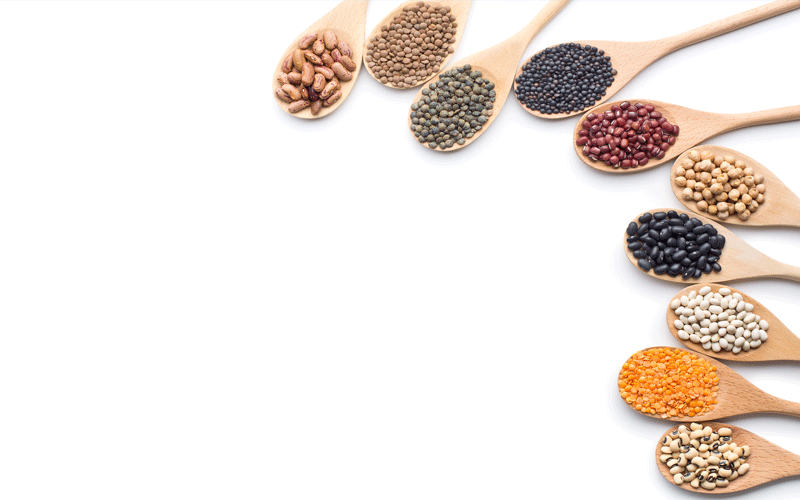Ten health benefits of pulses

Edible seeds are from plants in the legume family that include kidney beans, lentils and chickpeas. They are the main sources of protein among all cultivated crops and are mostly served alongside our favourite dishes. As the world commemorates world pulses day this week, SANDRA WEKESA explores the roles these plant based proteins play in our health.
They are low in fat and contain zero cholesterol
The 2010 US Dietary Guidelines recommend more frequent consumption of lentils, dry peas and beans because they are low in fat and cholesterol making them a healthy option as both a meat and starch alternative.
They are also recommended as part of a healthy diet for heart health, diabetes, and weight control.
Weight management diet
Weight loss involves consumption of restricted calories. This means consumption of pulses, which contain a soluble fibre might slow down digestion and absorption of other nutrients, including carbohydrates.
Foods higher in fibre content usually contain hormones that help people feel “full” or satiated at mealtimes, thus influencing weight loss.
Suitable for people with diabetes
There is increase in diabetes prevalence across the globe. For people with diabetes, consuming lentils, peas and beans may help with blood glucose management.
Compared with some other carbohydrate sources, pulses have a lower glycemic index.
Some studies have shown that consuming pulses may result in more stable blood glucose and insulin levels after meals because of their high fibre content.
Contain plant based chemicals that lower cancer risk
In many instances, pulses have been linked to offer benefits as a disease modifying tool to improve the management and treatment of these conditions.
Nutritional interventions in the prevention of various cancers offer a significant benefit to currently used medical therapies and are employed as first line medical therapies.
Once they are cooked, they reduce the protein base and still it works if eaten in a combination of foods.
Controls hypertension
Due to their low percentage in sodium chloride (salt), new study reveals that a nice mix of lentils and legumes can help in controlling high blood pressure.
Lentils have a capability to alter physical properties of blood vessels, thereby regulating the flow of blood oxygen and nutrients throughout the body. Their fibre bring down bad cholesterol in the body.
Important to the nervous system
Pulses are excellent in folate, which helps in brain development and function and important during pregnancy to reduce the risk for neural tube birth defects.
They are known to be chock full of Lutein, which help in cognitive decline hence making it ideal for brain development.
Vegetarian diet
Pulses are good sources of protein, vitamins and minerals, especially iron and zinc, which makes them an excellent food choice for vegetarians.
They contain eight essential amino acids. Consuming lentils with rice provides the full complement of amino acids needed for growth.
Helps manage constipation
Pulses are the cheapest, fibre-packed food groups you can include in your diet and they contain a mix of both insoluble and soluble fibre.
This means they can alleviate constipation by adding bulk and weight to stools, as well as soften them to facilitate passage. It also helps reduce bloating and gas.
Gluten-free diet
If a person with celiac disease consumes gluten (a protein found in wheat and some other cereal grains), an immune reaction is triggered in the small intestine, which can cause damage and poor absorption of nutrients.
Pulses contain no gluten, therefore, people with celiac disease can use chickpeas, lentils or peas as an ingredient in recipes.
They are a nutritional ally in reducing malnutrition
Iron deficiency is considered one of the most prevalent forms of malnutrition; therefore, they are most likely to not encounter macro nutrients deficiency. Taking lentils and kidney beans helps prevent anaemia.







